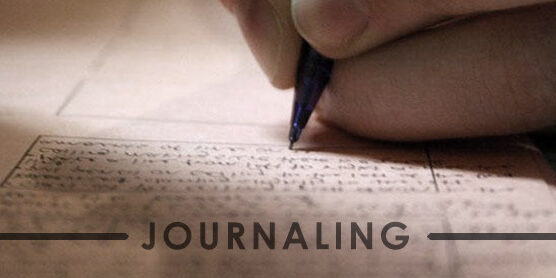Journaling: It's Been Around For A Long Time
For centuries, journaling has been a form of expression and exploration. Many people who never went on to be authors kept journals as a means of better understanding themselves and the world around them. Journals are a non-biased place to vent frustrations, reinvent your self-talk, and become better acquainted with your true identity. It is a place to explore your boundaries and your purpose in the world.
As you proceed on the path toward health and independence, you will inevitably need a space to center your thoughts and get a hold of those emotions you’ve been avoiding all these years. So, buy yourself a journal; or, for an added benefit of self-empowerment, make one from instructionals easily found on Pinterest or Etsy.com. Make it a point to have your journal nearby you at all times so that you can write down important moments in your life, like recognizing your triggers or speaking mindfully. You might try to focus on writing down positive experiences; over time, you will be able to look back and track all the great things that have occurred and are still occurring in your life!
It can be difficult to write about your feelings if you’re not accustom to naming them. Journaling gives you practice in identifying your emotions using accurate emotional vocabulary, which increases your Emotional Intelligence and your independence from negative thinking. Remember that no one need read your journal unless you choose to share it, so don’t be afraid of what winds up on the page. Some emotions can be scary or uncomfortable to admit, and that’s okay. Many of us stuff our emotions because we are taught at an early age that some emotions are good and some are bad. We are taught that admitting our darker emotions such as anger and disappointment risk punishment and rejection. So we deny these feelings and pretend they don’t exist. Unfortunately, however, these emotions don’t disappear and in fact fight to be recognized; this is why we act impulsively or out of character. When we honor our deepest pain and anger on the page, we make room for healing ourselves from the past.
Traumatic and unpleasant experiences are housed in our subconscious. We are not always aware of them, but they have a strong and sustained influence over our conscious thoughts and behaviors. Most substance abusers have experienced trauma at some point in their lives and so use drugs as a means to cope. Through journaling, you can identify your triggers as you explore the cause-effect relationships in your life. Writing in a journal is a safe way to tell your story without fear of judgement or rejection. Journaling also restores mental health and energizes you physically. You are no longer carrying around heavy thoughts and are free to play, work, and connect with others with ease. Journaling, in fact, shortens addiction recovery time because it combats depression and feelings of loneliness.
Journaling provides a space to work out conflicting emotions as you make progress on the journey toward independence. Journaling helps you to organize your thoughts so as to better make sense of them. As you write down thoughts, they are released from your psyche and onto the page; you no longer have the burden of hearing them inside your mind because they are on the page. You can choose whether to keep the thoughts in your journal or to cross them out or tear out and toss the page. It’s your journal filled with your thoughts, and you get to choose what stays and what goes.






